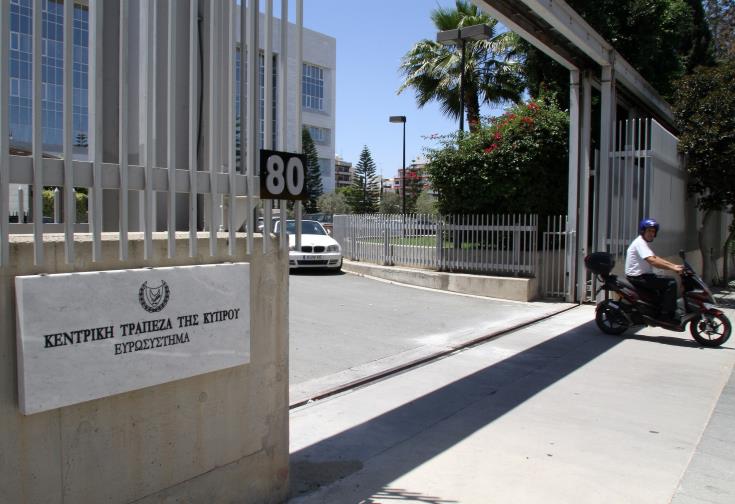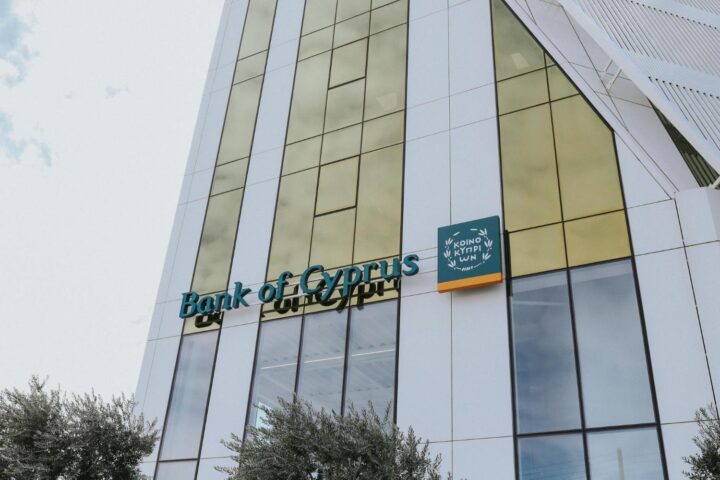As the European Central Bank decides to push up interest rates by another 50 basis point Cypriot banks are prepping to push up interest rates on deposits, acknowledging the increase in interest rates burdens the borrowers.
Just hours before ECB announced its decision to push up interest rates for the sixth time since July last year, Hellenic Bank’ CEO Oliver Gatzke, reportedly said that the island’s second largest bank is prepping to push up deposit rates.
As reported, HB’s CEO said in a meeting with media, that HB “does not ignore the fact that the increase in interest rates burdens borrowers and with this in mind, it will promote the corresponding balance in relation to the increase in deposit rates”.
At noon on Thursday, the European Central Bank (ECB) confirmed that it would stick to its tactics to tackle inflation by announcing a 50-basis point hike. Despite concerns and developments in the banking industry, the ECB believes that inflation will remain at high levels for some time and therefore, immediate measures are needed to de-escalate it.
Following ECB’s decision on Thursday, as of Monday the interest on refinancing operations stood at 3.5% and for deposits at 3%.
However, Cyprus banks have been under pressure from EU authorities, as data from the European Central Bank shows they offer their customers the lowest savings rates in the eurozone, with critics going as far as calling them greedy.
Before the new interest raise, based on data from the Central Bank of Cyprus, in January, the interest rate on deposits of up to one year from households decreased to 0.24%, compared to 0.35% the previous month.
In the eurozone, the average interest rate for household deposits is 1.53%, with the interest gap compared to Cyprus at 1.29 percentage points.
France offers the highest interest rate on deposits at 2.34%, followed by Slovakia and Italy at 2.08%.
Finance Ministry sources have confirmed that Brussels are coming down hard on Cypriot Banks for their practice of handing low interest rates on deposits.
“European monitoring authorities have been on Cypriot banks’ case, as the authority finds that there is an imbalance when one looks at the interest rate, which is now 3%, they receive for keeping deposits with the ECB. The ECB is dissatisfied with banks’ practice of handing out close to zero interest rates on people’s deposits,” said the source.
As the ministry source explained, over the past year deposits in the island’s banking system averaged between EUR 42 and EUR 43 bln, while carrying a loan portfolio of around EUR 28 bln.
Excess liquidity
This means that some EUR 15 bln excess liquidity had been deposited with the ECB at the deposit rate in force at the time.
“This can’t go on forever. We have been assured by Cyprus banks that they will be gradually pushing up deposit interest rates over the coming months,” they concluded.
In his own comments to the Financial Mirror, University of Cyprus economics professor Sofronis Clerides said that it was about time Cypriot banks pushed up interest rates on deposits.
“Cypriot banks certainly are certainly taking their time in bringing up interest rates on deposits, despite ECB instructions. They were fast to push up interest rates on loans, literally hours after announced by the ECB, but they have not acted with the same urgency when it came to deposit rates,” said the economist.
He argued that the gap between the two rates should finally be closed, as this is happening at the expense of the banks’ customers.
“For some many years, there was no motivation for people to save up, as international interest rates were low. Now that they have risen again, people should be given the incentive to start saving once more,” he added.
Clerides explained that saving provides a financial “backstop” for life’s uncertainties and increases feelings of security and peace of mind.
As he explained, savings may also fuel the economy, as people who build up an adequate emergency fund, can use their savings as the “seed money” for higher-yielding investments such as stocks, bonds, and mutual funds.
More time
In defence of the island’s banking system, Ioannis Tirkides, Chief Economist at the Bank of Cyprus, argued that banks may have taken more time in correcting interest rates on deposits as they are still on the rebound from damages inflicted from their Non-Performing Exposure.
He argued banks in other EU member states did not have the same challenges.
“Banking systems across the Euro area countries are in transition to a new monetary landscape of tighter liquidity conditions and higher interest rates, but all from different starting positions,” said Tirkides.
He said that deposit rates in Euro area countries only started to rise meaningfully in the last quarter of 2022.
“Today, banks in about half the Euro area countries pay deposit rates of less than 1%, and one-third pay less than 0.5 %.
“Comparisons are not straightforward, and differences reflect variable positions and differences in recent experiences,” said BoC’s chief economist.
He explained that liquidity conditions in the times of zero and negative interest rates were variable across countries, and consequent costs varied.
“Profitability, as a result, also varied, and in many cases, including Cyprus, banks were loss-making over successive years.
“Rebuilding capital buffers was more arduous and costly in some countries than others.
“In the case of Cyprus, we had considerable excess liquidity for a considerable period due to weaker demand for credit, as banks, companies, and households were repairing their balance sheets to healthier and more sustainable positions.
“There are initial lags, but trends will be converging.”










